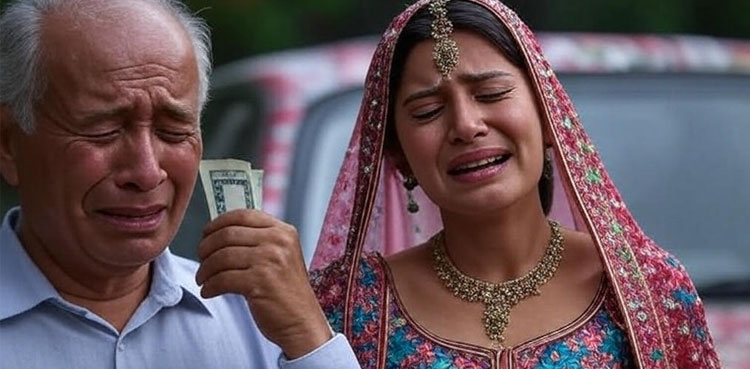In Asian societies such as Pakistan and India, cultural norms and traditions deeply embedded in society exert immense pressure on people, which comes at the expense of their mental well-being. Marriage, which is a pillar of social life in these countries, has become more of a transactional institution in recent times, propelled by economic and social factors like dowry, family standing, and social acceptance.
Today we are going to see how pressures from society, specifically regarding marriage, lead to mental health issues in Pakistan and India, based on recent research and cultural analysis to illustrate the psychological impact of these pressures.
The Cultural Context of Marriage in Pakistan and India
Marriage in Pakistan and India is not merely a union between two individuals but a complex social contract involving families, communities, and economic exchanges. In Pakistan, 85% of marriages are arranged, often prioritizing family alliances and social stability over individual preferences. Similarly, in India, arranged marriages dominate, with families emphasizing factors like caste, economic status, and dowry. The pressure to conform to these norms begins early, with women, in particular, socialized to view marriage as their ultimate life goal.
The commercialization of marriage has intensified these pressures. In Pakistan, dowry practices, though legally restricted, remain prevalent, with families spending substantial sums on gifts, furniture, and cash to secure favorable matches. In India, dowry demands have escalated, often leading to financial strain and, in extreme cases, violence against brides. This “rishta culture” in Pakistan, where women are judged on superficial attributes like complexion and earning potential, and the dowry system in India, where brides are evaluated as economic assets, have turned marriage into a business transaction, amplifying stress and anxiety.
Societal Pressure and Mental Health Outcomes
1. Pressure to Marry and Its Psychological Toll
In both countries, societal pressure to marry at the “right age” (often in the early 20s for women) is immense. In Pakistan, young women face relentless scrutiny through the rishta process, where constant rejections based on appearance or dowry offerings lead to feelings of inadequacy, self-doubt, and anxiety. A 2023 article highlighted a Pakistani woman in her 20s describing how the pressure to meet new families and review rishta profiles drained her mental health and affected her job performance.
In India, the stigma of remaining unmarried is particularly harsh for women, who face societal judgment and parental pressure to marry regardless of personal readiness. A 2019 study found that caregivers of patients with mental illnesses in India often viewed marriage as a “cure” for conditions like schizophrenia, ignoring the potential exacerbation of symptoms due to marital stress. This pressure contributes to depression and anxiety, with women reporting higher rates of common mental disorders (CMDs) due to marital expectations.
2. Marital Dissatisfaction and Mental Health
Once married, societal expectations continue to strain mental health. In Pakistan, studies show that marital dissatisfaction is a significant risk factor for depression and anxiety among women, particularly in arranged marriages where emotional compatibility is often secondary to family approval. A 2022 study in urban slums of Islamabad found that conflict, lack of emotional support, and unfulfilled expectations within marriage led to feelings of isolation and despair among women. One participant noted, “My husband and I have grown distant… It feels like I am living with a stranger, which often leaves me feeling depressed”.
In India, the pressure to conform to traditional gender roles—where women are expected to prioritize family honor and domestic duties—exacerbates mental health issues. A 2021 review highlighted that societal expectations around female chastity and male dominance justify violence against women, with 50% of women in Pakistan and similar trends in India reporting physical abuse, and 90% experiencing verbal or mental abuse. Such violence is a major predictor of anxiety and depression.
3. The Role of Dowry and Economic Pressure
The commercialization of marriage through dowry practices places immense financial and psychological burdens on families and individuals. In Pakistan, a 2018 study in rural Punjab found that higher dowry amounts, particularly in non-cash forms like furniture and electronics, were associated with better treatment of brides, suggesting that dowry serves as a form of economic leverage in a patriarchal system. However, the pressure to provide substantial dowries often leads to financial strain, contributing to stress and anxiety among families, especially those with limited means.
In India, dowry demands have been linked to severe mental health consequences, including dowry-related violence and “dowry deaths,” where brides are killed or driven to suicide due to unmet dowry expectations. The fear of being stigmatized as a divorcee or the inability to escape abusive marriages due to dowry repayments further traps women in cycles of psychological distress.
4. Cultural Stigma and Barriers to Mental Health Support
The stigma surrounding mental health in Pakistan and India compounds the impact of societal pressures. In Pakistan, mental health issues are often dismissed or attributed to personal weakness, with only 15 mental health institutions nationwide and a severe shortage of trained professionals. A 2020 study noted that cultural stigmatization prevents individuals and families from seeking help, leading to untreated depression and anxiety.
In India, similar stigmas persist, with marriage often seen as a solution to mental health problems rather than a potential stressor


Leave a Comment